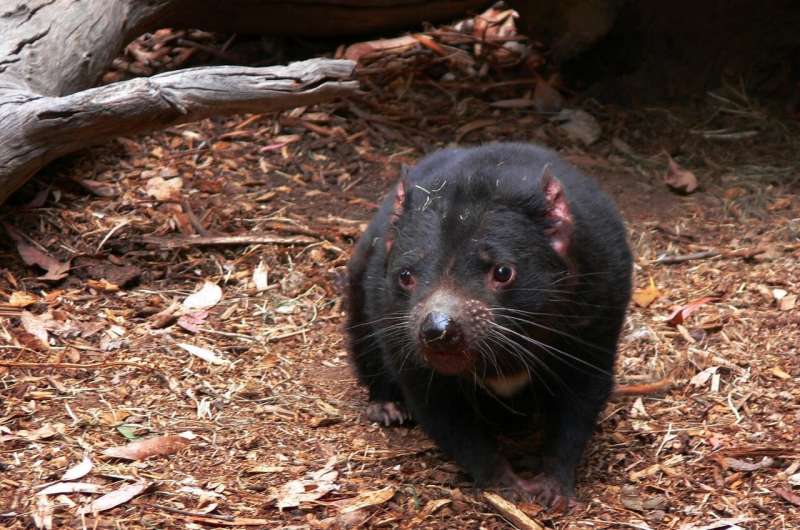This article has been reviewed according to Science X's editorial process and policies. Editors have highlighted the following attributes while ensuring the content's credibility:
fact-checked
trusted source
proofread
Genomic research may be key to understanding cancer resistance in Tasmanian devils

Over the past 30 years, Australia's Tasmanian devil population has been afflicted with an infectious cancer that has pushed the species to near extinction. The marsupials are highly susceptible to devil facial tumor disease, which is almost always fatal to their species. The genomic interactions between the disease and its host correlate with how quickly a susceptible animal becomes infected after exposure to the pathogen.
Through DNA sequencing of the animals and their tumors, USF Assistant Professor of Integrative Biology Mark Margres and Ph.D. student Dylan Gallinson have tracked the genomic interactions between the devils and the cancer. Their findings have been published in a coauthored paper, "Intergenomic signatures of coevolution between Tasmanian devils and an infectious cancer," in the Proceedings of the National Academy of Sciences.
"A big question in biology is the genetic basis for disease. The classic way to determine this is through genome studies and regression analysis that matches genes with disease risk," Margres said. "Previously there hadn't been a technique to study the interactions between both genomes."
Using a recently developed joint genome-wide association study, Margres and Gallinson assessed 960 genomes and 15 years of data on captured devils to track the co-evolution of the devils and the cancer.
"Our collaborators in Tasmania have been monitoring the spread of the disease and collecting tissue samples," Gallinson said. "We sequenced the DNA of both the tumors and the devils to find the mutation that contributes to the manifestation of the disease."
Their findings can inform both epidemiological models that track infectious diseases and devil management strategies that focus on saving the endangered species.
More information: Dylan G. Gallinson et al, Intergenomic signatures of coevolution between Tasmanian devils and an infectious cancer, Proceedings of the National Academy of Sciences (2024). DOI: 10.1073/pnas.2307780121
Provided by University of South Florida




















